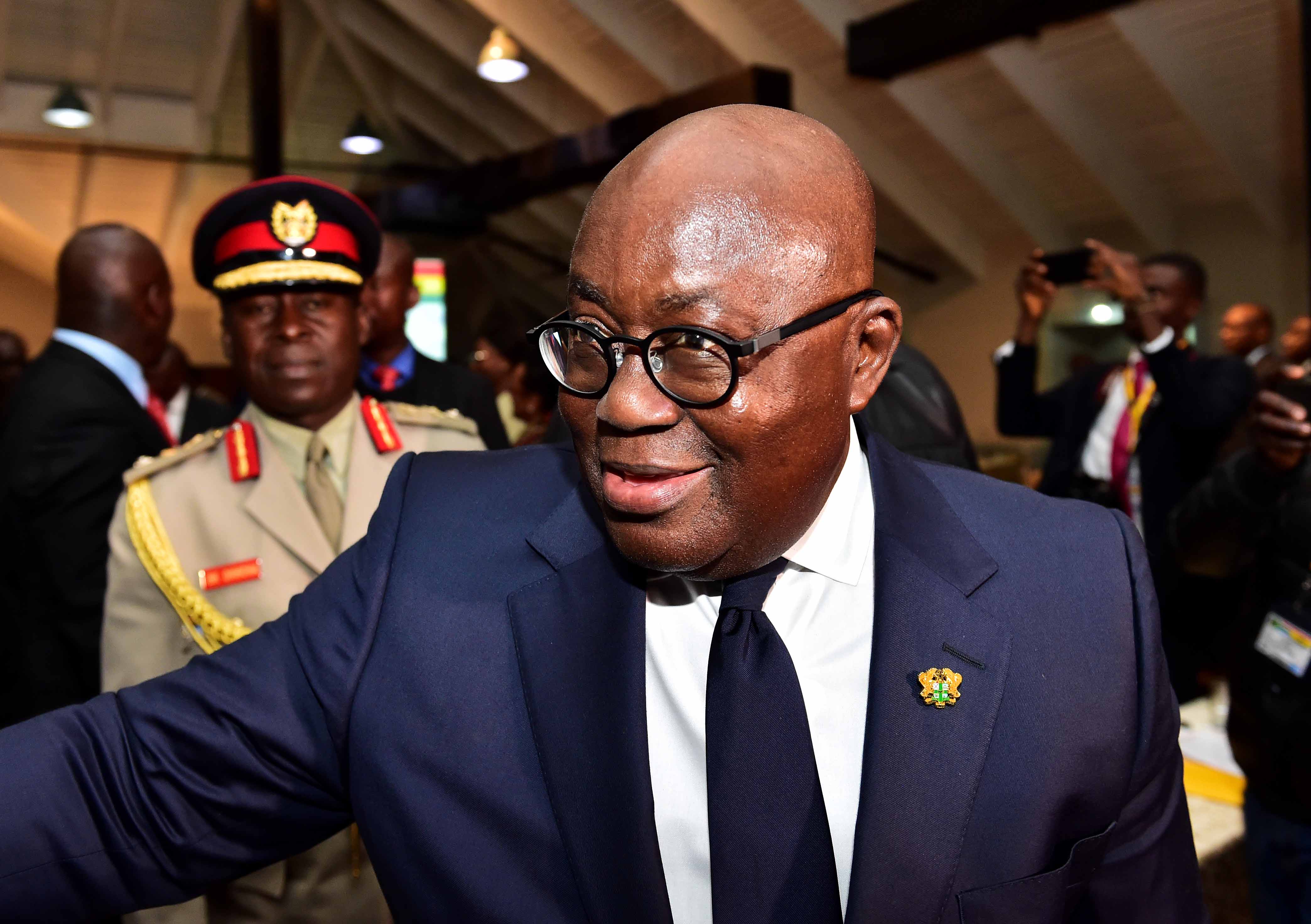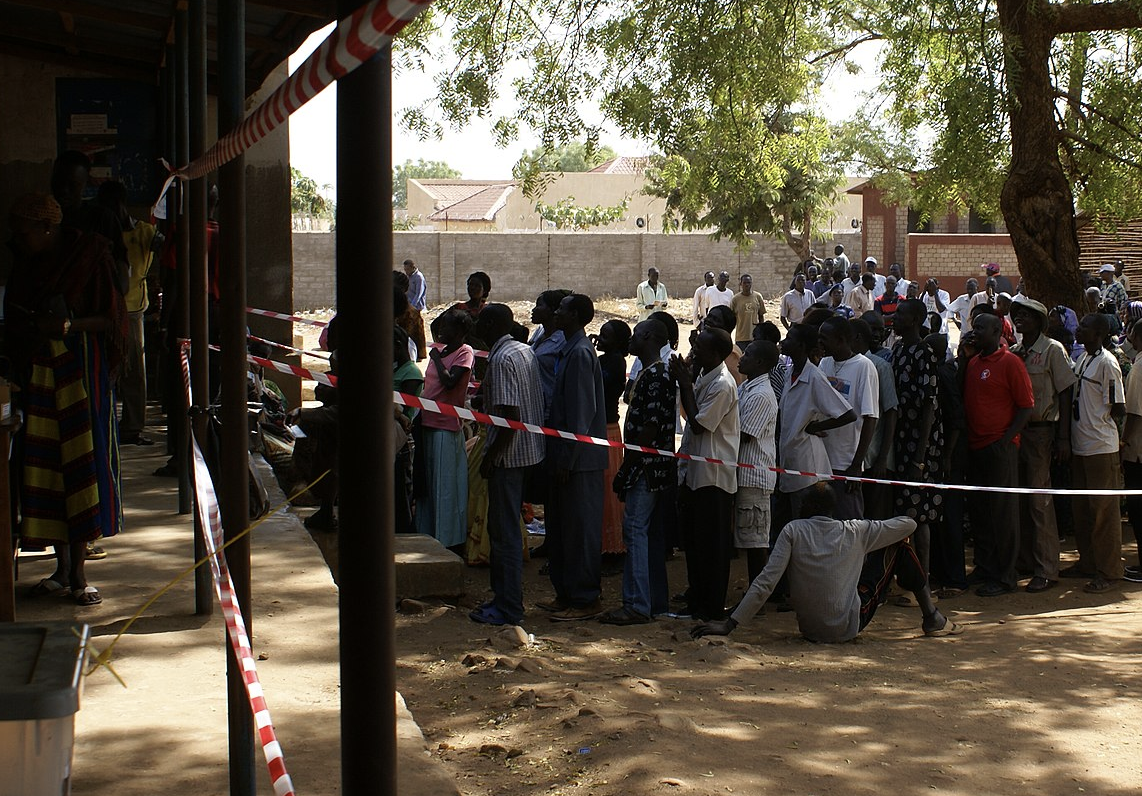News
Ghana Needs Truthful and Accountable Leadership to Save its Economy
Ghana has reached a rather unsavoury inflection point; one that is almost as serious as that experienced by Sri Lanka when a popular uprising overthrew the government.

Will Ghana follow the path many of its regional peers have taken, where a predatory state enriches the elite while unemployment rises, institutional functionality decays, faith in the establishment wanes, and investor confidence plummets?
Last Tuesday, Ghanaian president Nana Addo Dankwa Akufo-Addo fired his Minister of State for Finance, Charles Adu Boahen. This was an attempt to foil the reputational damage caused by a recent exposé on Adu Boahen’s remarks during what he perceived to be a business-as-usual dealing with an investor. He told investors from the UAE (Tiger Eye private investigators) that for the $500-million investment, he would take only 20% of the amount that will be invested as commission for his services.
This came after he dropped the note that the vice president would be essential to such a project and would need an appearance fee of only $200,000 to avail himself and offer his support to an investor. He added that an investor must also consider opportunities for the vice president’s siblings for his full support, apart from the $200,000. Not long after, and perhaps the expected finale, was when he adds that the president is like an uncle to him and reminds his captivated audience that the president was his late father’s former campaign manager. He also claimed that the president is his uncle.
The reaction by the president’s immediate colleagues was swift, positive and seemingly lauded. Vice president (VP) Mahamudu Bawumia, rumoured to be a potential flagbearer for the New Patriotic Party (NPP) and a digitalisation champion until recently, criticised Adu Boahen’s actions as influence peddling, especially and perhaps because the request for $200,000 from the investor was in exchange for an audience with the vice president.
All of this is occurring as Ghana, often praised as a bastion of democracy, good governance and stability in a fraught region, is experiencing one of the worst economic and social crises in recent living memory. There are now growing calls from citizens and members of parliament for the finance minister, Ken Ofori-Atta, to be dismissed following allegations of blatant corruption and severe economic mismanagement.
For months, soaring inflation (inching towards 50%), exclusion from the Eurobond market, and a currency in freefall (50%+ depreciation against the US dollar this year already) have been triggering panic across the country. Despite a $750-million African Export-Import Bank (Afreximbank) injection and a $600-$910-million release from the Cocobod facility in the past month, the emperor’s behind is still exposed, and his servants (us, if unclear) are subdued under the crushing weight of spiralling costs of living. For example, since June 2021, a 20-litre can of oil has gone up from around $16 to $85, and since January 2022, the price of gasoline in Ghana is estimated to have increased by over 170%.
The cost of current policies, actions (and inactions) is hardly a secret anymore — the extent of corruption and incompetence are acknowledged even among and within the government.
If development, the saying goes, is underwritten by the ‘basics’, there is little that the hand of fortune can do to halt it. What this crisis is clarifying is that an inconsistent set of government policy interventions can negatively impact economic development, especially when essential steps — particularly those that release the brakes on productivity, enhance efficient market access, and diversify and add complexity to the economic fundamentals — are skipped. Evidently, it makes a difference between long-run success and failure in economic development when, not if, unsettling global headwinds blow as hard as they have now.
Government’s rhetoric about realising a Ghana Beyond Aid will not take hold if the bureaucracy is still unresponsive and government is expensive; if corrupt agents continue to create perverse incentives and undermine governance; if mining continues to be surrounded by insecurity, unsustainable practices and untapped productivity and value chain enhancements; if agriculture continues to operate in and with low and falling yields; if manufacturing is plagued by party politics and lacks economies of scale; if electricity is too expensive; if bottlenecks and high costs characterise logistics; if a constantly stressed financial sector constrains services; and if the economy operates on a narrow revenue base.
Ghana’s leaders need to commit to changing the structures of the economy in a manner that will make it all but impossible to return to the current stage of development. Unless the government demonstrates a readiness to legitimately cut and limit spending, address the excessive fiscal deficit, and manage the growing unfavourable attitude and reputation around its credibility and legitimacy, foreign investors will look elsewhere, private markets will continue to look away, and capital, like the coward it can be, will keep soaring far and away to safer places where it expects to earn better returns, and that will, of course, occur right before Ghanaians will move their money, and more unfortunately, talents out of the country.
In this scenario, Ghana’s unemployment rate among the working population of 13% (more than 50% if those underemployed are counted) will continue to rise. The nation’s debt will be further downgraded beyond the rescue of any PR ‘woe is us Africans’ spin, and as a result, social services that primarily help the economically disadvantaged will be cut back as even more public monies are required to pay off debt.

It is unclear if necessary reforms can be contemplated with the current government or whether even the opposition can rectify the mess. Still, until then, the current crop can do better by committing to end the patronage state, investing in the many, not few, and choosing options that promote growth. Absent of some dramatic measures, Ghana will accelerate its decline and increasingly resemble the economic wasteland of too many others on the continent.
“Africa needs stronger leadership” is a known quip — misinterpreted by some and misused by others. It’s wisdom, though, as former president of Nigeria Olusegun Obasanjo says, lies in seizing the moment, rising to the opportunity, making tough choices, and stepping aside when it becomes necessary. Now is the moment when that maxim is most needed and apt. Not when market prices of commodities are good, and our rhetoric rhymes with global fads. It is when the proverbial sh*t hits the fan.
Until the president and his colleagues in government can see and name their faults, part with the laggards, relieve actors whose decisions failed the country, make substantial cuts to unnecessary spending, state the facts as they are, and ask for help in full transparency, the journey to recovery will not begin.
Ghana desperately needs to follow a different path that promotes growth so that there are job opportunities for the many youths at risk of complete marginalisation, middle-aged people who have laboured for decades with little to show for it, the elderly who fought for a world beyond external oppression, and the tears of ancestors who died with hopes of a better future for generations to come. It is that level of leadership and accountability that is required and will be remembered as part of a leadership legacy. Otherwise, no post-2024 AU/UN/EU appointment will erase nor justify the misery of poor choices and a lack of accountability inflicted on the population, for it will be remembered.
This article originally appeared on Daily Maverick
Photo: Government ZA Flickr


